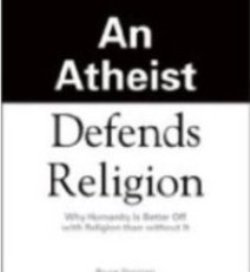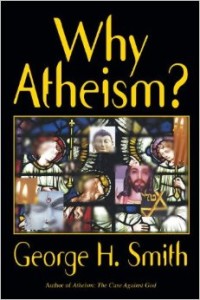Author Bruce Sheiman approaches the debate between theists and atheists about whether God exists from a unique point of view. He is a professed atheist who defends the right of religious people to have their faith. He touts the psychological and physical health benefit one may derive from placing hope and faith in their Creator. Sheiman coined a term to differentiate himself as an atheist (one who doesn’t believe in God personally) to Richard Dawkins and his fan club as antitheists, meaning people with a militant atheistic agenda. Antitheists not only reject God for themselves but actively campaign to eradicate faith in others. It’s very helpful to understand the difference. In a section of his book titled "Scientific Materialism and Relativism" Sheiman writes, In the traditional evolutionary view, there is no difference between humans and animals, since both are driven by the same survival and gene replication imperatives. On the plus side, this may lead many people to respect all living creatures. On the negative side and in the extreme, this can lead to species relativism: the idea that humans are not the pinnacles of creation; we are no different from other creatures. (p41) A little later Sheiman clarifies that point, adding, …[b]ut the second implication is very disturbing. If humans are animals and our lives are not divinely inspired, the edifice of Judeo-Christian morality about the sanctity of human life is discredited. God is dead and we should recognize ourselves as Darwinian primates who enjoy no special status compared to other animals. … [Read more...]
Mocking atheism
I can't really say that I enjoyed writing this article, but I felt it was necessary, all the same. I don't want to sound smug or condescending while attacking the personal beliefs of another human being, but there are times when it simply can't be avoided. Nonfiction often requires a brutal honesty. The purpose of writing this isn't to irritate an atheist, but simply to demonstrate that such criticism is fairly easy to produce. Consider it proof of concept, if you will. It seems that too many atheists are convinced their worldview can't be mocked. As atheism becomes more popular worldwide and the internet offers some degree of anonymity, some atheists have become considerably more aggressive, and obnoxious. They are no longer satisfied with their atheism, and now gravitate toward anti-theism. For example, an atheist recently posted this rather inflammatory comment in the discussion group on Facebook associated with the Unbelievable? podcast, where topics about atheism and religion are being constantly discussed: As god, you get to screw up and theists get to apologize it away Now, the only apparent reason to post such an inane comment is to provoke an angry response from the theists that read it. The assertion wasn't particularly clever and didn't seem to merit a more serious response, but to let the author know that I had noticed his effort, my response employed sarcasm, using a cartoon... Another atheist then joined our conversation and (somewhat more eloquently than the first atheist) said: I realize that it is incredibly frustrating to have it … [Read more...]
Why Atheism?
I've discovered that some of my non virtual friends in the real world believe I'm being sarcastic when I refer to my "atheist friends", but that isn't always true. I am being quite sincere when I say that there are people who call themselves atheists that I honestly consider to be my friends, even though we may have never met in person. My friend David is a humanist. He and I have respectfully disagreed about many topics of mutual interest, but if I ever visit New Zealand or he ever comes to the U.S. I fully expect to shake his hand, buy him a beer, and for us to finally have a face-to-face conversation after several years of pleasant long-distance correspondence. Philosophy professor and atheist author George H. Smith likewise has graciously accepted my friendship on Facebook. I'm also sure that he and I could have a friendly conversation over a beer, a single malt scotch, or even a glass of water, should we ever met in person. Although Professor Smith and I do not appear to agree very often when the topic of conversation is religion, we agree most enthusiastically about the philosophy of Libertarianism. My favorite book written by an atheist remains An Atheist Defends Religion by Bruce Sherman. It would be difficult to claim another book has supplanted it as my all-time favorite book written by an atheist, because so much of Sheiman's philosophy echoed my own. Basically, Sheiman made the same overall point about probability that was hammered home so well that I quoted him in my own book, Counterargument for God, after he wrote: The propensity for matter … [Read more...]



